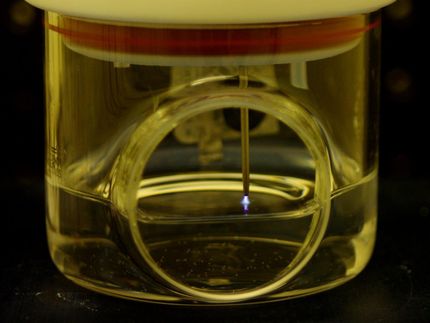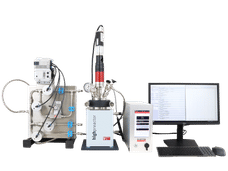Improved adhesive for products like transparent tape could benefit biofuels economy
Advertisement
An adhesive used in products like laminate countertops may also help cement a place for economically viable biofuels, according to a Kansas State University researcher.
Susan Sun directs K-State's Bio Materials and Technology Laboratory, where she studies bio-based materials. Her research group is studying adhesives made from by-products of soybean, corn, sorghum and biomass fuels.
"There are two important forces driving this research," Sun said. "We're trying to develop these bio-based adhesives to replace environmentally hazardous materials," she said. "Also, we need high-value products to sustain the biofuels economy."
Sun said the adhesives commonly used in construction products like kitchen floors and laminate furniture are formaldehyde-based and isocyanide-based. The isocyanide-based adhesives are toxic, she said. Moreover, the formaldehyde-based adhesives affect air quality and human health because the compound's carbon and nitrogen bonds are reversible in humid conditions, emitting formaldehyde into the air.
On the other hand, Sun said biofuels producers need co-products like adhesives to make sustainable fuels economically viable. For biomass biofuels, the amount of energy that goes into producing them is still greater than the energy that the biofuels can produce.
"Biomass by its nature contains not just sugar necessary for the biofuel, but also lignin, protein and other materials," Sun said. "So after you convert it into biofuel, you still have a lot of leftovers. So you have to develop high-value chemicals and bio-based products out of that biomass to balance the economics."
Lignin, a major by-product of cellulosic biomass, is what holds plants upright, Sun said. Without it, plants would grow flat on the ground. This property makes it a good basis for polymers, she said. Lignins show promise for adhesives, she said, because they're rich in aromatic structures with many functional groups.
Sun also said plant oils have properties that make them suitable for adhesives that are activated by pressure. Pressure-sensitive adhesives are used in everyday products like transparent tape, postage stamps, sticky notes and name tags. Her research group is studying the molecular structures and reaction pathways related to adhesion.
"If you have a name tag and put it on your shirt, when you peel it off, adhesives may be left on your clothes," she said. "That's why you need to design the backbone of the polymer to be strong enough to pull the sticky group back."
She said it's also important to design pressure-sensitive adhesives that can be applied quickly to products in the factory.
"If your adhesives are good but it takes a few hours to cure, the industry won't pick it up," Sun said. "So it's not just a structural challenge, it's also a performance challenge and an economic challenge."
Sun's group also studies proteins with a specific structure that relate to adhesion properties. This information will be important to K-State plant scientists, who engineer plants to produce functional protein polymers.
"They don't necessarily know which plants are good for materials, so that's why they say that I write them the prescription for the plant," Sun said.
In August, findings from this research appeared in the journal Biomacromolecules and were presented at the national meeting of the American Chemical Society.
One application of bio-based adhesives from Sun's projects was creating a bio-based barrel for cattle feed that has been commercialized. The product uses straw and soy adhesives and no hazardous chemicals, so it is safe to eat.
"With the use of oil drums to hold feed, the farmer has to pay $6 per container to recondition them for reuse," Sun said. "This one you don't have to collect. The cattle just eat them, so it's an environmental benefit, too."
Sun's other research area is to develop biodegradable plastics. Recently, she and her co-workers collaborated with Ken Klabunde, university distinguished professor of chemistry, to improve the process flowability and strength of a bio-based plastic, such as poly(lactic acid), using magnesium oxidize nanoparticles. The flowability makes it easier for the material to flow into molds that form products like the utensils available at K-State's Student Union. And that makes the process more efficient for manufacturers, Sun said.
This research appeared in the Journal of Biobased Materials and Bioenergy in June and in the Journal of Applied Polymer Science in October.
"The social impact of our work at the Bio Materials and Technology Laboratory is on environmental quality and biofuel sustainability, which will improve people's life in long term," Sun said.




































































